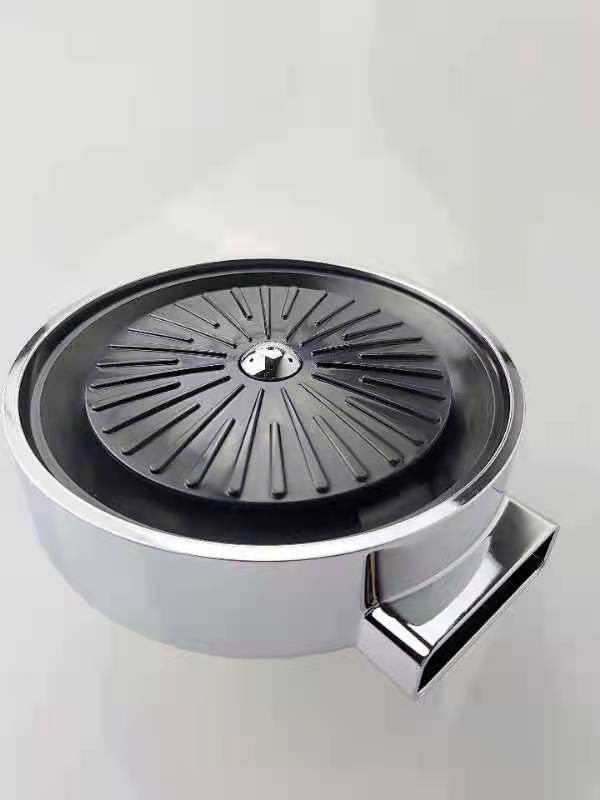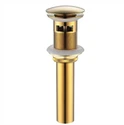Hey there! As a cup washer supplier, I often get asked a bunch of questions about our products. One of the most common ones is, "Are cup washers suitable for acidic environments?" Well, let's dive right into this topic and find out.
First off, let's understand what we mean by acidic environments. Acidic environments can be found in a variety of places. For example, in some industrial settings where certain chemicals are used, or in food and beverage industries where acidic substances like lemon juice, vinegar, or acidic cleaning agents are present. In a home kitchen, you might have acidic spills from things like tomato sauce or citrus fruits.
Now, when it comes to cup washers, we need to look at the materials they're made of. Most of our cup washers are crafted from high - quality materials such as stainless steel, plastic, or a combination of both. Stainless steel is known for its durability and corrosion - resistance. It can withstand a fair amount of acidic exposure. However, not all stainless steels are created equal. Some grades are more resistant to acids than others. For instance, 316 stainless steel has a higher molybdenum content, which gives it better resistance to pitting and crevice corrosion in acidic environments compared to 304 stainless steel.
Plastic cup washers also have their own advantages. They're lightweight, cost - effective, and some types of plastics are highly resistant to acids. For example, polypropylene and polyethylene are known for their good chemical resistance. They can handle mild to moderate acidic substances without getting damaged easily. But, if the acid is too strong or the exposure time is too long, even these plastics can start to break down.
Let's talk about the impact of acidic environments on cup washers. When a cup washer is exposed to acid, several things can happen. If the acid is strong enough, it can cause corrosion on the metal parts. Corrosion can lead to the formation of rust, which not only looks bad but can also affect the performance of the cup washer. Rust can clog the nozzles, reducing the water pressure and the effectiveness of the rinsing process.
In the case of plastic cup washers, acids can cause the plastic to become brittle or discolored. Over time, the plastic may start to crack, which can lead to leaks and ultimately, the failure of the cup washer.
However, it's not all doom and gloom. There are ways to make cup washers more suitable for acidic environments. One option is to use protective coatings. For metal cup washers, a special anti - corrosion coating can be applied. This coating acts as a barrier between the metal and the acid, preventing direct contact and reducing the risk of corrosion.
Another approach is to design the cup washer in a way that minimizes acid exposure. For example, using a closed - loop system where the acidic water is quickly drained away and replaced with clean water. This reduces the time that the cup washer is in contact with the acid.


Now, let's take a look at some real - world applications. In a commercial kitchen, where there's a high volume of cups to be washed and acidic substances are frequently used, a well - designed cup washer can be a great asset. Our Sink Cup Rinser is a popular choice in such environments. It's built with high - quality materials and is designed to handle the rigors of a busy kitchen. The stainless steel parts are of a grade that offers good resistance to acidic spills, and the plastic components are carefully selected for their chemical resistance.
For those who want to upgrade their home sink, our Glass Rinser Sink Attachment is a great option. It can be easily installed and is perfect for rinsing cups after use. Even if there are occasional acidic spills in the sink, the cup washer is designed to withstand them.
If you're looking for a cup washer for a more specialized cleaning task, our Cleaning Rinser might be just what you need. It's designed to work effectively in environments where acidic cleaning agents are used. The materials used in its construction are chosen to resist the effects of these agents.
So, are cup washers suitable for acidic environments? The answer is, it depends. With the right materials, design, and maintenance, cup washers can definitely be used in acidic environments. But it's important to choose the right product for your specific needs.
If you're in the market for a cup washer and have concerns about acidic environments, don't hesitate to reach out. We're here to help you find the perfect cup washer that will work well in your environment. Whether you're a commercial kitchen owner, a homeowner, or someone in an industrial setting, we have a solution for you. Let's have a chat about your requirements and see how we can meet them.
References
- "Corrosion Resistance of Stainless Steels" by ASM International
- "Plastics in Chemical Processing" by Hanser Publications
- "Principles of Corrosion Engineering and Corrosion Control" by David A. Jones





